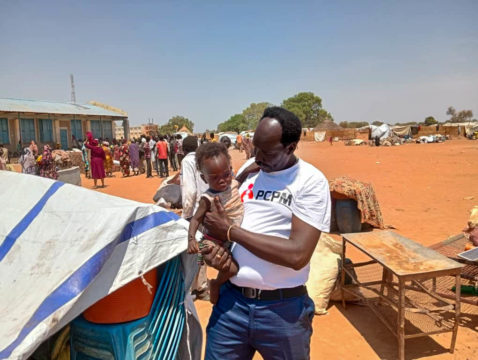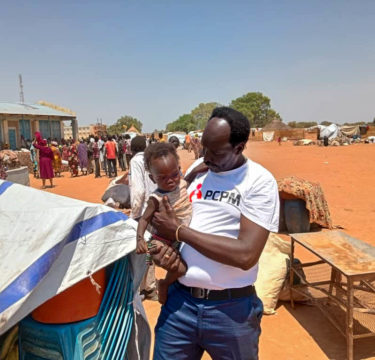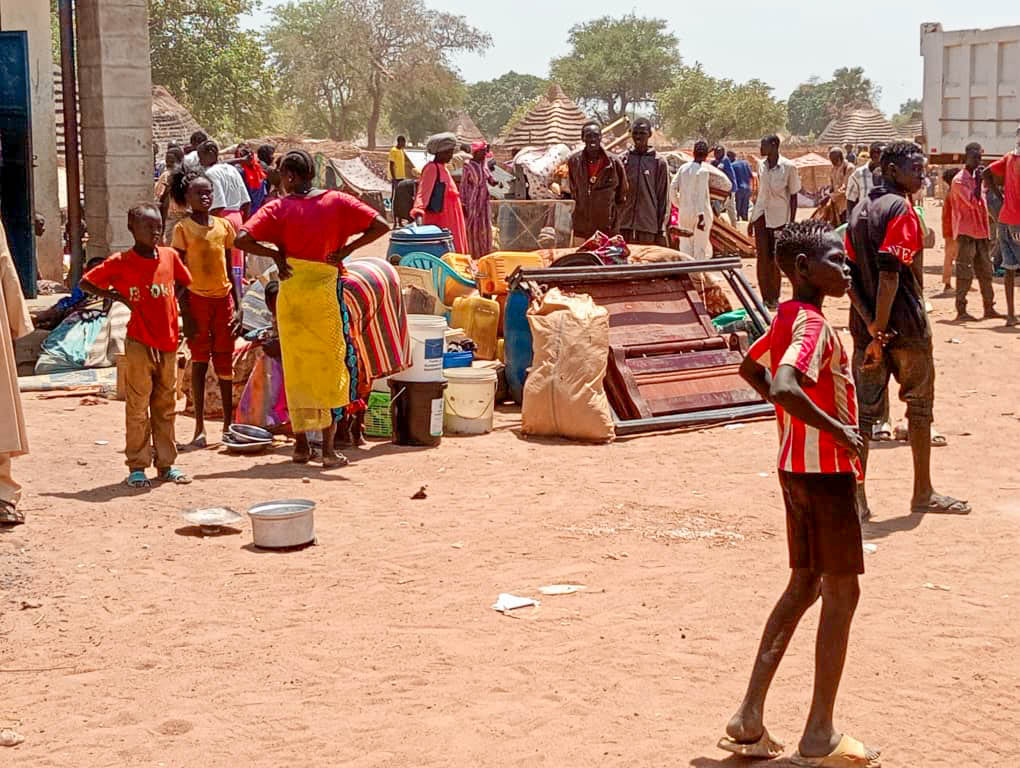Dramatic Situation in South Sudan. PCPM Helps Thousands of Refugees


“In my own eyes, my husband was shot,” says one of the refugees from Sudan who fled to Aweil in the Northern Bahr el Ghazal state in South Sudan. This is the result of ongoing fighting between the Sudanese Armed Forces (SAF) and the paramilitary Rapid Support Forces (RSF) in the Kordofan and Darfur regions of Sudan. “We are providing aid to over 1,000 refugees,” says Wojtek Wilk, president of the PCPM Foundation. In just four days, 10,000 people arrived in the Aweil region.
“Permanent refugees”
More people continue to arrive in South Sudan from Sudan. Many of them are South Sudanese who fled to border areas when their country was engulfed in war. Now, as the situation in the region has reversed, after years, they are returning to South Sudan. Unfortunately, the country they return to is one of the poorest in the world and is itself struggling with a huge crisis. Many people suffer from hunger, with women and children being the most vulnerable. To make matters worse, the rainy season is about to begin soon, and most refugees live out in the open space.
Among many places in South Sudan affected by the conflict in neighboring Sudan is the Buothyar camp in Aweil East County, Northern Bahr el Ghazal state. It has become a destination for Sudanese refugees and returnees arriving in large numbers as part of relocation from the Abyei region. According to incomplete data, 2 million South Sudanese have fled their homes, and about 8 million people need humanitarian aid. Additionally, the increasing number of people fleeing Sudan to South Sudan worsens the situation. One of the counties with the greatest migration pressure is Aweil, where in places like Gordhim, supported by the Polish Center for International Aid (PCPM), hunger is widespread.

Polish Foundation Provides Assistance
These people were displaced due to the ongoing conflict between the Sudanese Armed Forces and the paramilitary Rapid Support Forces (RSF) in Kordofan and Darfur in Sudan. Before reaching Buothyar, many spent months in Abyei living outdoors—for example, sleeping on football fields. They lacked adequate food, medicine, and shelter. Refugees and returnees had no medicines, food, clean water, or shelter, and children fell ill without treatment, enduring hot sun and sandy ground. Despite the presence of organizations running aid projects in Abyei, maintaining hygiene was difficult.
— The PCPM Foundation team in South Sudan is helping over 1,000 refugees from the disputed Abyei region on the Sudan-South Sudan border, who lived outdoors for over half a year without any support, including food aid. Nearly 700,000 refugees have arrived in South Sudan. Since 2023, we have been providing medical aid to refugees and saving severely malnourished children at risk of dying from starvation, says PCPM CEO Wojtek Wilk.
He adds that all support in South Sudan is funded by donors from Poland. PCPM can be supported through fundraising on their website.
Sudanese Refugees in Buothyar
The tragic situation of the refugees is illustrated by the story of Adhet Anei Tong, a 19-year-old widow, whose husband died in the war; she has a sick child and does not know what to do. Similarly, Adut Chan lost her husband during their escape when a shooting broke out; now she has no one and does not know what to do. Mohammed was luckier and managed to escape with his family, but he does not want to return to his hometown in his mind because, as he says, “I do not want to remember it because a massacre happened there.”
Eleven-year-old Akuol Manyang, like Mohammed, does not want to return to traumatic events. She saw people being shot and lost family members herself.
The decision to come to Buothyar was influenced by several factors. Refugees feared the upcoming rainy season, which could threaten their lives in Abyei. One refugee woman carrying an infant said she preferred to be in a safe place for her children and family. When they saw a fleet of trucks, they boarded without hesitation, not wanting to be left behind. They were also informed by earlier returnees and refugees that organizations like PCPM operate in Buothyar, providing medicine and nutrition for their children. They considered Buothyar the best place to settle with children and asked PCPM to continue the support they had relied on.
In Aweil County, where Gordhim is located, the situation is particularly alarming. The entire province has over 550,000 people, plus 16,500 refugees in camps such as Buothyar, Warwar, and Maperdut. This was the case three months ago, but since then the number of refugees has increased significantly. According to local PCPM staff, 10,000 people arrived in Aweil County alone within four days.
The number of refugees exceeds the region’s absorption capacity, and the camps face severe shortages in supplies and infrastructure. Faulty water systems lead to chronic shortages of drinking water, forcing residents to undertake long and dangerous journeys. As a result, sanitary conditions are extremely poor, promoting outbreaks of infectious diseases. The lack of food causes more and more people, especially children, to suffer from malnutrition.